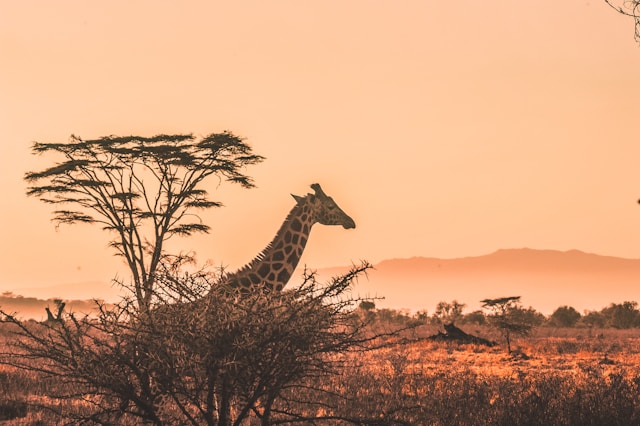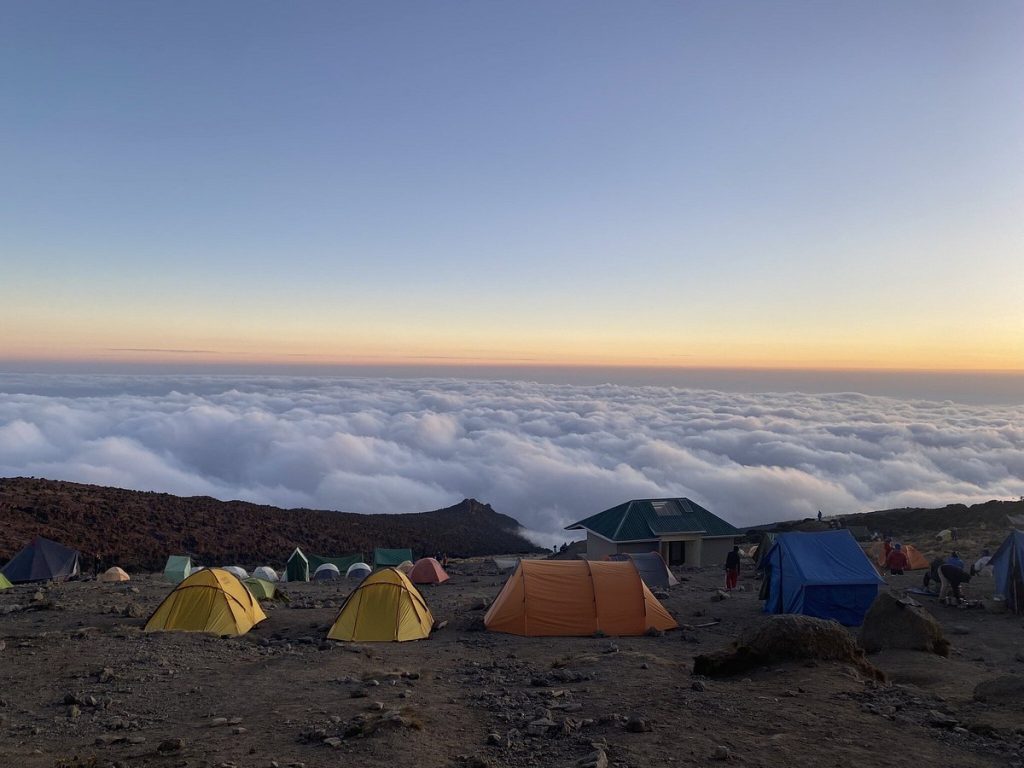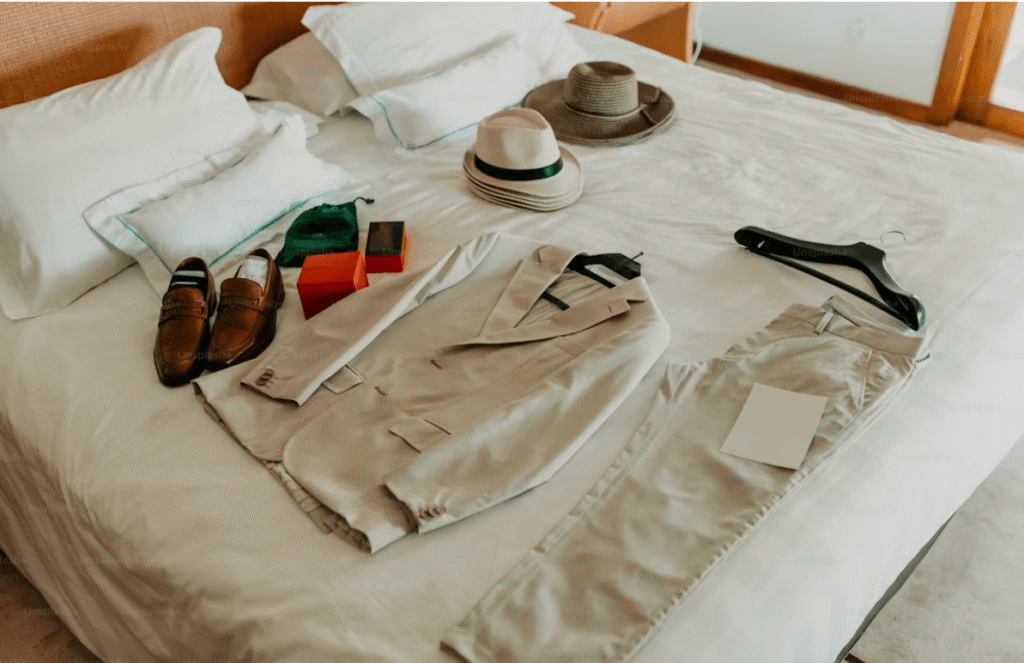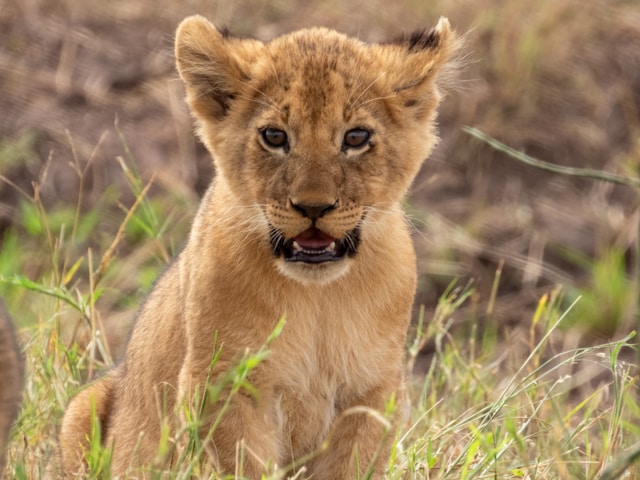We would like to give you an overview of what you could take with you on your safari in eastern and southern Africa. The listed travel essentials are just an example and you may have other wishes individually. But the following can serve as a good example.
- (light) walking shoes
- slippers or rafters (hiking sandals, Tevas)
- rain/wind jacket
- warm sweater
- jeans or zip-up trousers
- (t-)shirts
- underwear etc.
- towel(s)
- swimwear
- plastic bag for dirty clothes or wet clothes
- possibly detergent
- daypack for excursions and walks where necessary
- sunglasses, sunscreen and something to put on your lips (for example Vaseline)
- head covering such as a cap or hat
- insect repellent (with DEET)
- first aid supplies such as (head) painkillers, plasters and something against diarrhea
- vaccination booklet
- for contact lens wearers a spare pair of glasses (because of dust)
- camera, sufficient spare batteries and memory cards and/or external storage medium
- film camera with sufficiently large batteries
- charging cable 220V and/or 12V for film camera/battery charger (possibly with battery clamps)
- world plug (an adapter plug is sometimes also available in local shops)
- binoculars
- flashlight or headlamp
- spare light bulb and extra batteries
- water bottle
- something to read (books, travel guide etc.)
Luggage and weight:
Due to overloading of your vehicle or aircraft, the number of kilos is subject to limits. In addition to your usual hand luggage and/or photo bag, your regular permitted luggage is often subject to a maximum. In general, we report the number of kilos that you are allowed to take with you before your departure or for the safari in question on the website. Feel free to ask us about it. Remember that it is often possible to do a small wash on the way. Many lodge safaris even offer a laundry service at the lodge. For domestic flights or transfers by small aircraft, the maximum number of kilos is generally 12 kilos. Furthermore, travelling with hard suitcases is generally not permitted.
Vaccinations and Malaria:
You have booked a safari or are perhaps going to book one with Jolita Safari! That is of course already very nice. To prepare yourself even better for your safari to an African country, you need more information about vaccinations. After all, you don’t want your well-deserved safari trip to be ruined by contracting a tropical infectious disease. In the countries you visit, tropical infectious diseases occur. This may also apply to your safari destination. In order not to (partly) ruin your holiday, it is therefore wise to be well informed and, if necessary, to be vaccinated. This can prevent a lot of misery and, among other things, the loss of enjoyable safari days.
Clothing:
In game parks and during game drives, it is advisable not to wear brightly coloured clothing. Wear clothing with natural shades such as khaki, grey, brown or green. Wearing complete camouflage clothing is punishable in many countries and is therefore not recommended. In many places such as lodges and campsites, it is possible to do laundry. So do not take too many clothes with you.

Money:
This differs per country you visit, with a clear difference between eastern and southern Africa. Excursions that are not included in the travel programme often have to be paid for in US dollars. Cash is therefore definitely recommended. It is also advisable to take a credit card with you. A Visa credit card with a PIN code is most widely accepted (especially in southern Africa). You can also withdraw money from an ATM, but be careful with this and do not trust that an ATM will always work. Be sure to take cash dollars in small new denominations (1, 5, 10, 20 and max. 50 or 100 dollars). The Euro is increasingly accepted, while traveller’s cheques are more difficult to exchange but are safer. A mix of the above is the most sensible thing to take with you.
Travel documents and visas:
For each country you visit, your passport must be valid for at least 6 months and must have two blank pages. For a visa, you can use a visa service or you can purchase the visa yourself at the relevant Consulate or Embassy. It is also possible to purchase a visa at the border in most countries. Always inquire about the applicable requirements before departure. Visa requirements change from time to time. The costs of a visa are also subject to change from time to time.
Any questions? It is common that when packing there are always doubts about what to take and what not to take. The kilos also often play a role in the composition of your luggage. If you have questions about what to take/not to take on your safari, please contact us. We are happy to advise you.



